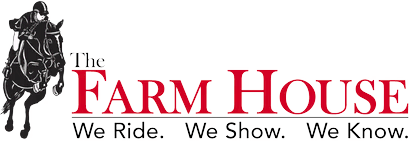
The Scoop on Equine Ulcers
Michelle Drum
The morning of the show I arrive in the pre-dawn hours to assist with morning chores. My trainer is already walking stall to stall down the aisle and plops a dollop of goop out of an oral syringe into each residents mouth. As I look on questioningly, she explains it's Omeprazole, best given on an empty stomach to help prevent ulcers. It's part of her show day care protocol. My trainer went on to explain how the stress of showing or traveling can induce an ulcer.
Ulcers are a lot more common then most horse owners think. Some of the signs include random changes in behavior / attitude ( for instance your normally sweet gelding is suddenly snarky), weight loss, reduced appetite or a dull coat. Some of these signs make it seem like maybe just a deworming is in order. However such may not be the case, other signs your horse may have stomach ulcers include a change in work ethic or work avoidance.
Perhaps your self loading trail horse champion has suddenly become difficult to catch out in the field, or has decided he forgot how to get on the trailer. Many people would convince themselves that these are simply training issues that need to be addressed. But before you send your horse off to the trainer, or have that cowboy come out, ask yourself... could just be a simple case of equine ulcers? Your horse is trying to tell you his tummy hurts and work/ travel make it hurt more.
In addition to treating the ulcers, you may want to consider some changes to your feed and turnout routine for your horse. Horses are natural herbivores, when left to their own device they graze most of the time. This keeps the gut moving and reduces the incidence of ulcers. Turnout is very important, studies show that horses turned out for long periods of time ( 8 hours or more) are less likely to develop ulcers then horses kept in stalls. These horses tend to require less commercial feeds to maintain weight. Highlighting another commonality among horses with ulcers. Feed, horses fed large amounts of concentrated commercial grains tend to be more susceptible to ulcers. Horses on stall rest also present a dilemma predisposing them to ulcers.
There are several ways you can try to keep a horse on stall rest actively 'grazing' if simply throwing hay isn't getting the job done. I've got one I call a 'nester' after she eats half of a flake she makes a nest with the other 2.5 flakes of hay. I put hers in a standard hay net. It helps keep the stall cleaner and her hay cleaner too! Is your horse a Hoover? Try a slow feed hay net to keep him munching longer - it will also keep him occupied longer. Do you have a picky hay eater? Talk to your vet about adding a little high quality more palatable hay like Alfalfa into his daily routine, or maybe some soaked hay cubes or
The only way to truly diagnose them is with an endoscopy. The veterinary community is working toward having an easier way to diagnose ulcers with either blood or fecal tests. However to date a marker system has not been found to develop these tests. The only approved medication for the treatment of equine ulcers is Omeprazole. There are many products on the market today claiming they prevent or treat ulcers but Omeprazole is the only one that has been tested and approved.
Always check with your veterinarian before making any changes to your horses diet or exercise program.
